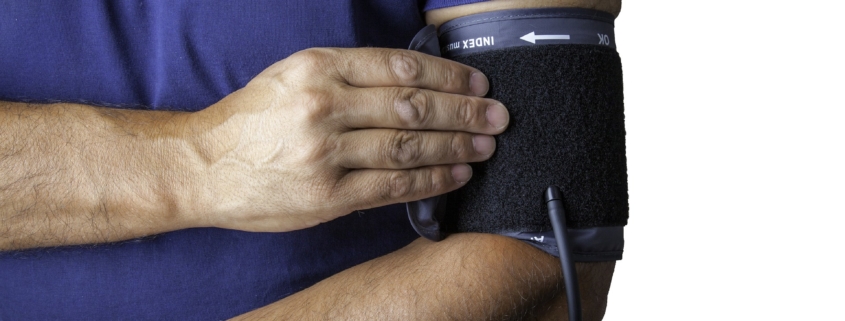We all know how important taking care of our health is but how many of us actually make the effort to?
After all, it can be hard to balance optimizing your health with the daily grind many of us face with work, kids, errands and family commitments being just a few of many events capturing our precious time and attention.
Whilst turning a blind eye to our health is often the easier option, it’s important we pause to recognize the long-term damage this could be having on our health.
To celebrate and highlight Tradie National Health Month, we’ve decided to put together a list of 5 things you can start doing today to improve your health (if you aren’t sure what Tradie National Health Month is and haven’t checked out our blog post about it yet, make sure you do so here so you know what we’re on about).
1. Get Enough Sleep

Problem
Between busy lives, high-stress levels and smart devices, finding the hours in the day to sleep may be our greatest challenge of all! The National Sleep Foundation recommends that adults aged between 18-64 years old should be aiming for 7-9 hours per night in order to reap the full rewards of a good night of rest. Unfortunately, this is too often a far cry from what many of us are logging each night.
As rest is the only opportunity for our brain and body to process and restore, the issues associated with a lack of high quality sleep go far beyond feeling a little groggy (not to mention moody) the following day. Poor sleep affects our levels of concentration, ability to process information, store both short-term and long-term memories as well as being linked to a decrease in sex drive and immunity and an increase in blood pressure, weight and diabetes.
What you can do
In order to hit the target of 7-9 hours of sleep each night, here are a few simple tips and tricks you can keep up your sleeve to help you catch those much needed Zzzz’s.
You know what they say – Fail to plan = plan to fail! Decide what hours of sleep would be optimal for you and your lifestyle, design a sleep schedule and stick to those hours every night.
Get into the routine of going to sleep and waking up at the same time every day and your body will thank you for it! Whilst it might be hard to get into this routine, if you persevere it will soon become a habit and your body will send you signals to sleep/wake up at those times without you having to set your alarm.
Top Tip
Set two alarms each day – One to wake and one to sleep. If possible, place your alarm away from your bed so that you need to physically get up to turn it off in the morning.
Try setting your sleep alarm for half an hour before you want to be asleep to give yourself time to get ready for bed and shut-off mentally. This alarm should also signal the time to stop using devices for the day as the harsh blue lights keep our brains active and make it more challenging to prepare for sleep.
2. Drink Enough Water

Problem
As the average human body is composed of up to 75% water, making sure we are consuming enough H2O is vital.
Water forms the basis of our fat tissues, blood, muscles and bones – All extremely vital to good health. This means that dehydration from a lack of water results in quite a few nasty symptoms that can impact your health, productivity and overall health. Some of the common symptoms of dehydration include: thirst (that’s right, If you’re thirsty, you’re already dehydrated!), headaches, lack of energy and cracked lips.
What you can do
Luckily the solution to drinking enough water is pretty self-explanatory – Drink more water!
The average adult should be aiming to consume around 2-3 litres of water daily (more if you experience excess perspiration through exercise or exposure to heat).
If you don’t enjoy drinking plain water try infusing your favourite fruit to sweeten the taste (lemon, lime and forms of berries are all great options).
Top Tip
Set reminders on your phone or write yourself notes if you struggle to remember to guzzle the goods.
3. Get A Sweat Up

Problem
A staggering 44.5% of Australian’s don’t get sufficient levels of exercise, leading to an increase in many health issues associated with a lack of physical activity such as diabetes, heart disease and obesity.
A lack of strength conditioning and/or cardiovascular endurance may also increase your risk of falling victim to a nasty incident or accident in the workplace.
What you can do
Our time poor daily schedules are often to blame for our minimal physical activity, however, finding the time to squeeze in the recommended minimum 150 minutes of moderate exercise or 75 minutes of vigorous exercise per week could be easier than you think and is definitely worth your while!
Health benefits such as improved energy levels, sleep quality and memory as well as a decrease in weight and chronic diseases all reportedly linked to raising a sweat.
Top Tip
If you are time poor, try to incorporate as much incidental exercise as possible into your routine. You’d be surprised just how much simple choices such as taking the stairs over the elevator or parking further away at the shopping centre will accumulate in your day and contribute positively to your health.
4. Eat How You Want To Feel

Problem
It’s the age old saying – “You are what you eat” and unfortunately unhealthy dietary habits often lead to unhealthy people.
Australia is currently in the midst of an obesity epidemic with the Australian Institute of Health and Welfare reporting that 2 in 3 Australian adults are classified as obese, with the majority of obesity issues stemming from poor diet culture.
Ideally, a healthy diet should be based around an array of fruits and vegetables, however, the ABC recently shared statistics revealing that 4 in 5 Australian’s (that’s a staggering 80%!) aren’t currently meeting the recommended daily intake of fruits and vegetables required to function at optimal levels so it’s clear that we have some serious work to do.
Low quality diets can often lead to the same health risks as a lack of exercise as well as a host of additional physical problems such as brittle nails and hair and unhealthy skin and teeth as a result of deficiencies in diet. It could even be contributing to mental health issues and fatigue so it’s important to ensure you follow a balanced diet!
What you can do
Aim to eat at least five serves of vegetables and two serves of fruit everyday.
For bonus points, try to incorporate as many different coloured fruits and vegetables into your diet as possible throughout the week to ensure you are receiving an adequate intake of various vitamins and minerals.
Top Tip
If you struggle to consume enough vegetables (or if you simply don’t like them), consider ‘hiding’ them in smoothies as the flavor can easily be masked without foregoing the health benefits.
5. Make Mental Health a Priority

Problem
Alarmingly, the construction industry has a heightened rate of suicide when compared to other industries.
Each year approximately 190 construction workers take their own lives, with workers in this industry six times more likely to lose their lives at the hands of suicide than through a workplace accident.
What you can do
Be aware of the warning signs and symptoms in yourself and your mates!
Watch out for mates who have suddenly stopped going out, are withdrawing from activities with loved ones, are exhibiting reckless behaviours such as excessive alcohol or drug use or just don’t seem to be their usual selves.
If you believe a mate, family member or colleague may be struggling, try reaching out to them to see if they could use a helping hand.
For tips on how to reach out or for more information, including an online quiz and a full list of warning signs and symptoms, click here.
Top Tip
There are a number of incredible organisations who provide endless resources and support if you find yourself or a mate struggling. Check out just a few of them below:
MATES in Construction – 1300 642 111
Headspace – 1800 650 890
Lifeline Australia – 13 11 14
Beyond Blue – 1300 22 4636
MensLine Australia – 1300 78 99 78
Remember that even though August is the designated month for raising awareness for Tradie Health, it’s important to look after your health all year around. Nail the five tips and tricks listed above to improve your general well-being and take steps towards a healthier and happier you today.






